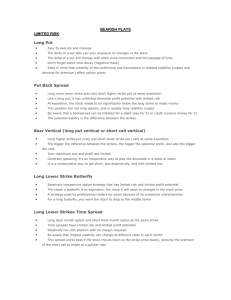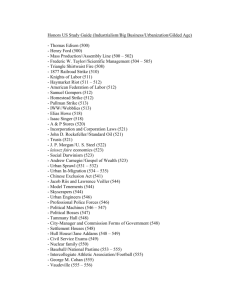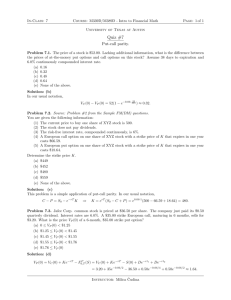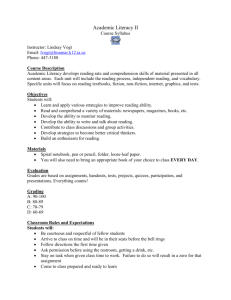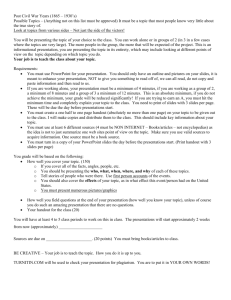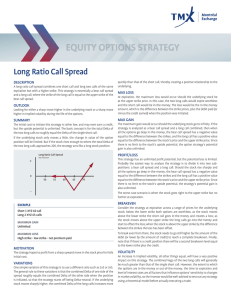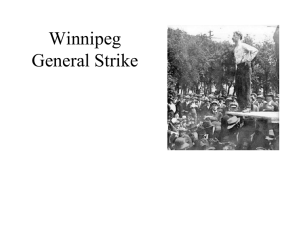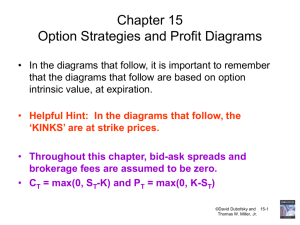BULLISH PLAYS
advertisement
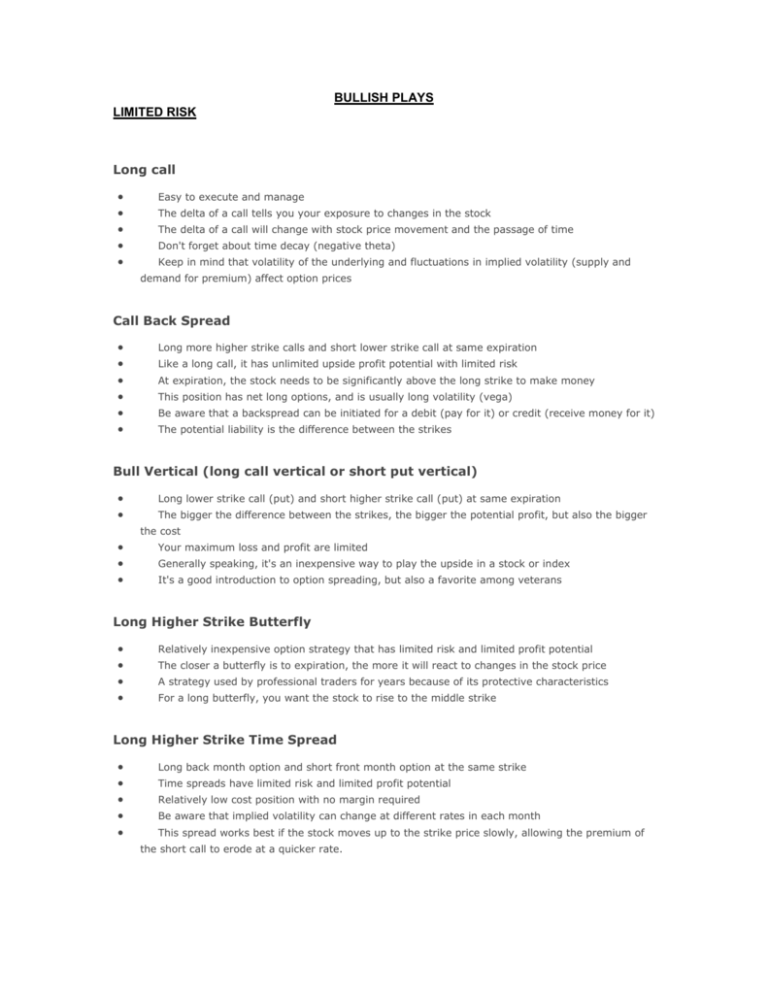
BULLISH PLAYS LIMITED RISK Long call Easy to execute and manage The delta of a call tells you your exposure to changes in the stock The delta of a call will change with stock price movement and the passage of time Don't forget about time decay (negative theta) Keep in mind that volatility of the underlying and fluctuations in implied volatility (supply and demand for premium) affect option prices Call Back Spread Long more higher strike calls and short lower strike call at same expiration Like a long call, it has unlimited upside profit potential with limited risk At expiration, the stock needs to be significantly above the long strike to make money This position has net long options, and is usually long volatility (vega) Be aware that a backspread can be initiated for a debit (pay for it) or credit (receive money for it) The potential liability is the difference between the strikes Bull Vertical (long call vertical or short put vertical) Long lower strike call (put) and short higher strike call (put) at same expiration The bigger the difference between the strikes, the bigger the potential profit, but also the bigger the cost Your maximum loss and profit are limited Generally speaking, it's an inexpensive way to play the upside in a stock or index It's a good introduction to option spreading, but also a favorite among veterans Long Higher Strike Butterfly Relatively inexpensive option strategy that has limited risk and limited profit potential The closer a butterfly is to expiration, the more it will react to changes in the stock price A strategy used by professional traders for years because of its protective characteristics For a long butterfly, you want the stock to rise to the middle strike Long Higher Strike Time Spread Long back month option and short front month option at the same strike Time spreads have limited risk and limited profit potential Relatively low cost position with no margin required Be aware that implied volatility can change at different rates in each month This spread works best if the stock moves up to the strike price slowly, allowing the premium of the short call to erode at a quicker rate. UNLIMITED RISK Long Stock Buy and hold -- it's a time tested strategy Not as much leverage or protection as certain option positions Isolate your speculation - and you may find an option position that has more desirable risk characteristics Hold it forever, and you'll get any dividends payable Long Combo “Synthetically” long stock Long call and short put at same strike and expiration Has the same risk exposure as long stock, and dividends and cost of carry are built into the combo price Unlike stock, combos expire, and unless it is exactly at the money, long stock will be the result of the call exercise or the put assignment. In most cases, requires less margin than long stock Long Semi-Stock (off-strike combo) Similar to long combo, but has smaller positive delta Long higher strike call and short lower strike put at same expiration The position is generally initiated as premium-neutral but that can change quickly as the stock price moves Requires less margin than either long stock or same-strike combo Short Put Potential profit is limited to the price of the put Risk is limited to the strike price minus the price of the put Generally requires less margin than buying stock Can be a good way to get long a stock you want to buy at a lower price (no guarantee that it will be assigned) Put Ratio Spread for Credit Long higher strike put and short more lower strike puts at same expiration The most common ratio between short and long is 2:1 Ratio spreads have unlimited downside risk – monitor your position carefully At expiration, greatest profit at the lower strike price Because the position is net short options, there is an increased volatility risk

